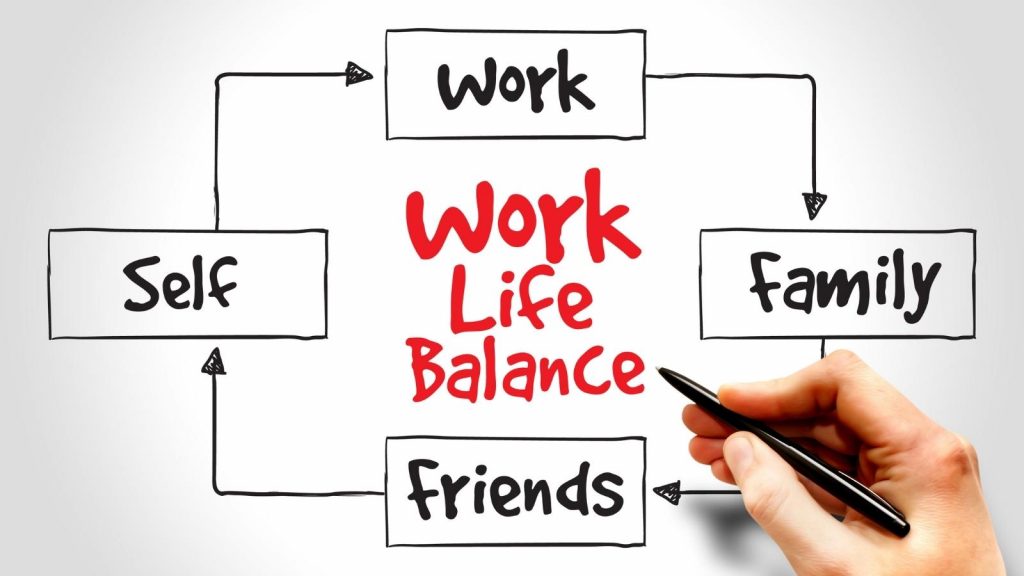Before the pandemic, it was rare for people to work at home. Fast forward to 2024 in a post-pandemic world and the world of employment looks very different. Nowadays, millions of employees have working from-home jobs on a permanent basis.
Sixteen percent of companies across the globe now work 100% remotely, and this number is bound to increase over the next few years.
The public opinion on permanently working from home is divided. Some people love it and some people hate it.
Many employers chose to return their employees to the office after two years of working remotely during the worst part of the pandemic. Others decided to continue with remote working on a full-time or part-time basis.
There is no right or wrong answer when it comes to whether working from home is good or bad. It depends on your personal preferences or your employer’s needs, and there are advantages and disadvantages to consider.

Let’s take a look at the main benefits and drawbacks of working from home in the modern day.
Table of Contents
What Are the Benefits?
Whether you’re an employer or employee, you might wonder whether working from home will affect your motivation or success in the workplace. Despite remote working presenting some challenges, there are also several advantages to working from home yourself or allowing your employees to do so.
Here are some of the main benefits of working remotely.
Better Work-Life Balance
A record number of employees are now searching for jobs that allow them to have a great work-life balance. People want flexibility and they want more control over their schedules, and working from home provides them with the flexibility that they want.
Remote working enables you and your employees (if you have them) to start and finish the work day whenever is most practical. Even if you still need to work to a relatively strict schedule, working from home still provides a little more flexibility than in-office working doors.

Because of the reduced travel time, you have more time to get a morning workout in or enjoy a sit-down breakfast with your family before you start work. You have much more freedom to arrange the things that you enjoy around your work life.
Improved Health and Well-Being
Establishing a great work-life balance through remote working can boost your physical and mental well-being in a number of ways.
Having more control over your schedule empowers you and makes you feel more confident in your work. You will also feel more relaxed knowing that you have a great level of flexibility in your schedule. This can have positive effects on your mental health, may reduce your work-related stress, and increase your motivation.
You can also schedule your workouts and social activities around your work life more easily when your job is remote. As a result, you will find it easier to maintain a great level of physical fitness and thriving social life.
Both health and social life have beneficial effects on your physical and mental well-being.
Increased Productivity with Working From Home Jobs
The empowerment that you feel when you have control over your schedule and are able to organize your life outside of your employment feeds into your productivity and engagement at work. As long as you’ve got the best ergonomic furniture, you’ll be able to concentrate more easily and focus on your tasks.
Many studies show that remote workers are usually more productive, more engaged, and happier. The increased flexibility and lower work-related stress encourage employees to be more productive during the workday.
If you are a business owner and you have recently transitioned into full-time remote working arrangements with your employees, you may also notice an increase in employee retention rates. Happy employees that have flexible remote working roles are less likely to search elsewhere for work.
When you show your employees that you genuinely care about their health and well-being, you can build a trusting and loyal relationship with them, and this is important for any employer to consider.
What Are the Drawbacks of Working From Your Home?
It’s clear to see that remote working provides a range of benefits, but it also has a few drawbacks. Whether you’re an employee or employer, these drawbacks are worth keeping in mind when you’re considering switching to a remote working arrangement.
Here are the potential disadvantages of working from home.
Siloing
Even with the many communication platforms that are now available, working from home still presents a risk of siloing. When you are working in a different location from your colleagues, you may feel isolated and unsupported.
You can no longer get up and speak to your colleague sitting next to you in the office. Instead, you need to communicate your concerns through an online platform and wait for a response.
This can cause you to feel worried, alone, and less motivated to work. You may also find yourself sitting for long hours without getting up to stretch.
Lack of Company Culture
As a business owner, allowing your employees to work remotely may impact company culture. It’s much harder to establish a strong sense of teamwork when you don’t have a central location to bring your staff together.
A lack of company culture can negatively impact your engagement and productivity as an employee. If you’re an employer, you need to consider how to manage your remote workers and maintain your existing company culture and avoid any detrimental effects on your business’s success.
If your employees are expressing interest in remote working but you’re about its potential negative impacts, you could try a hybrid model, where they work from home on a part-time basis.
This arrangement may help to maintain a great company culture while also catering to your team’s wishes.
Distractions Working at Home
It’s no surprise that there are more distractions at home than in the workplace. Kids, pets, housemates, and noisy neighbors can interrupt your workflow and make it difficult to concentrate on your tasks.
In some cases, it’s almost impossible to completely eliminate every destruction. Sometimes, you need to work around distractions, which can make your work life very stressful and reduce productivity.
Your Turn
How do you like working from home? Do you feel isolated or do you love the flexibility it gives your life? I’d love to hear more in the comments below.
- Powering Up Your Hyperlocal Social Media Marketing Company - March 1, 2026
- BlueSky vs Twitter (X): Similarities & Shared Features Explained - February 26, 2026
- How To Join X (Twitter) Chats And Inspire Others Along The Chat - February 26, 2026




Hi Lisa,
Interesting post because even though productivity generally seems to rise in a WAH setting from employee manager friends I spoke to, siloing is an issue according to a friend who heads HR in a local town. He was happy when people returned to the office because walking 10 feet to get an answer in 2 seconds beat waiting 2 days to get an answer from some remote workers. Largely though, depending on the nature of the job, going remote seems to be better for businesses.
Ryan
Hi Ryan, LOL, isn’t that the truth? I think I would start texting if I didn’t get an answer via email within 24 hours. I’m sure the remote work saves a lot of money, like heating and the electricity for the office buildings alone. I do find it more isolating now that I’ve been at it for several years now. But I love the freedom more and could not go back to working in a cubicle. Thanks for your story on this one and make it a fabulous day Ryan.